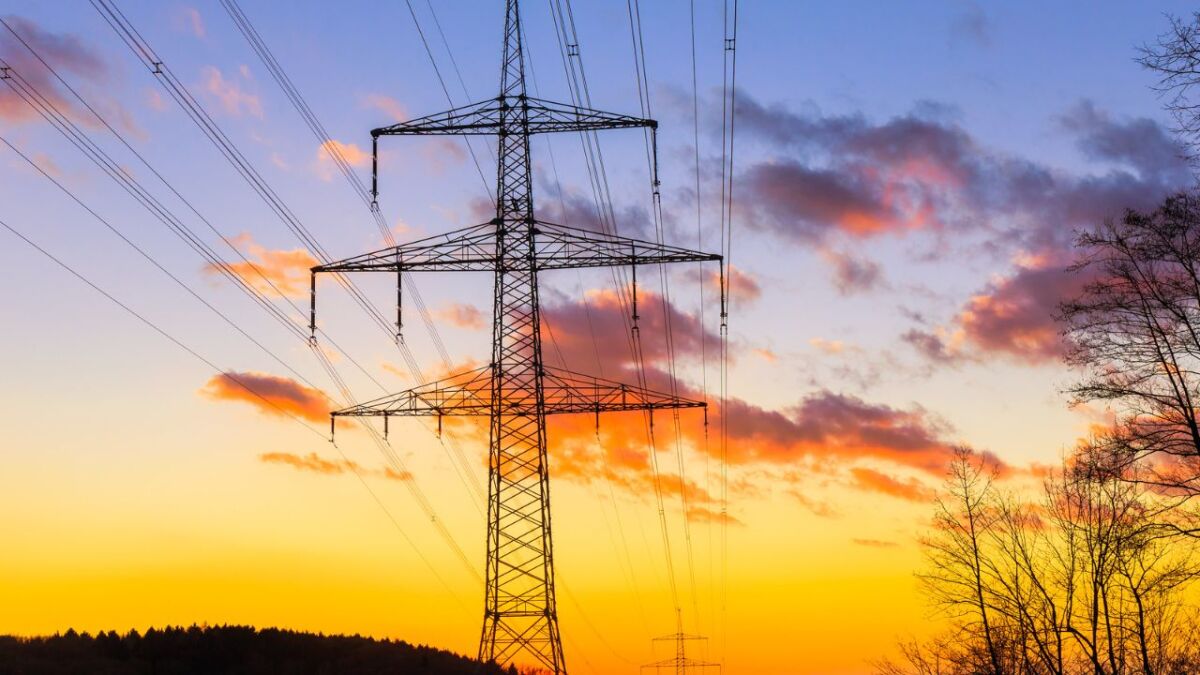
Blackout: the ultimate guide to long-term and widespread power outages
👉 The key facts from this guide
- A blackout is a widespread and prolonged power outage that can have significant impacts on society.
- Preparing for a blackout involves stocking up on supplies, providing emergency power sources, and ensuring communication.
- During a blackout, it is important to stay calm, support each other, and adapt to the situation.
- Although the likelihood of a blackout is low, the consequences can be devastating, so preparedness is essential.
- A blackout can be triggered by various factors, including technical failures, natural disasters, criminal activities, and system failures.
- It is important to prepare for the possibility of a blackout and have a plan in place to minimize the impact.
A blackout (power outage) can have fatal consequences in our modern technology society.
To ensure you are well-prepared, I am providing you with information on how to prepare optimally and what to do during a blackout.
Read on to acquire comprehensive knowledge.
What to do before a long power outage? How to prepare?
Being able to safely navigate through a long or catastrophic power outage largely depends on your preparation.
There are certain necessities for a blackout that you should have on hand. By acting now, you can protect yourself and your family later.
Here are the most important points so that you immediately know what to do today in case of a blackout:
- Get clean drinking water for a long power outage
- Get first aid supplies and medication for a long-term outage
- Stock up your pantry with foods that can be prepared during a power outage
- Ensure lighting and safety during a power outage
- Get a backup power supply for your home for a long outage
- Stay informed before a possible long-term power outage occurs
And now let's dive into the details and go through everything step by step so that you are well-prepared.
Why should you think about a blackout?
Blackouts are not unrealistic. While the probability may be low, they can still occur - and then with devastating consequences.
However, I would rather not spread fear with this guide, as people generally have enough of that.
This blackout guide is meant to provide you with a simple yet comprehensive help so that you do not lie awake anxiously at night.
With this guide, I want to provide a reasonable and realistic view of a blackout and comprehensively inform you about the chances of a blackout and what consequences to expect.
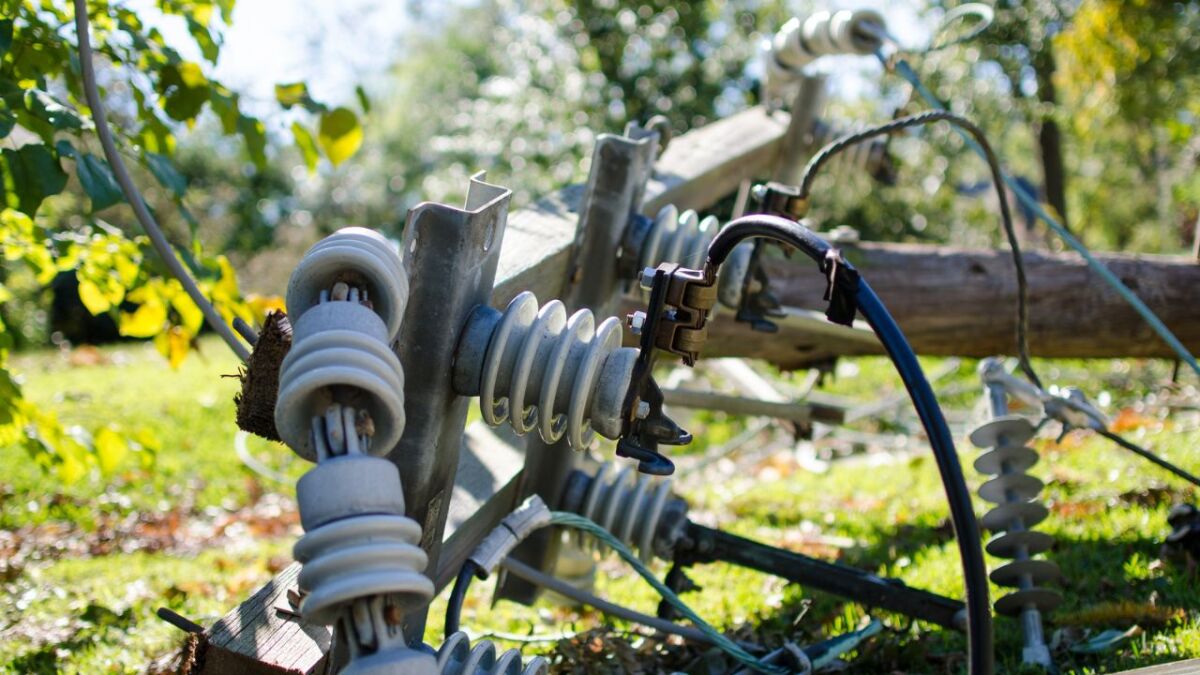
Furthermore, it is important to me that we humans can think and live a little more independently again. In my opinion, societal risk awareness is only present in rudimentary form for a blackout.
With the knowledge from this guide on power outages, you may be able to live a step more self-sufficiently.
And what would a guide on a severe power outage be worth without giving you the right help to prepare for a blackout.
"Mastering a blackout begins with great knowledge transfer and preparation" - Martin Gebhardt
So let's start and work through step by step.
What is a blackout?
A blackout is the complete interruption of the power supply in a large area and is the most severe form of power outage that can occur.
An area can be an entire region, such as a city, state, or even an entire country. The failure of power in all of Europe is also possible.
In addition, a blackout always entails that the power outage lasts longer than a few hours. A blackout is usually an event that lasts for several hours, days, or even weeks.
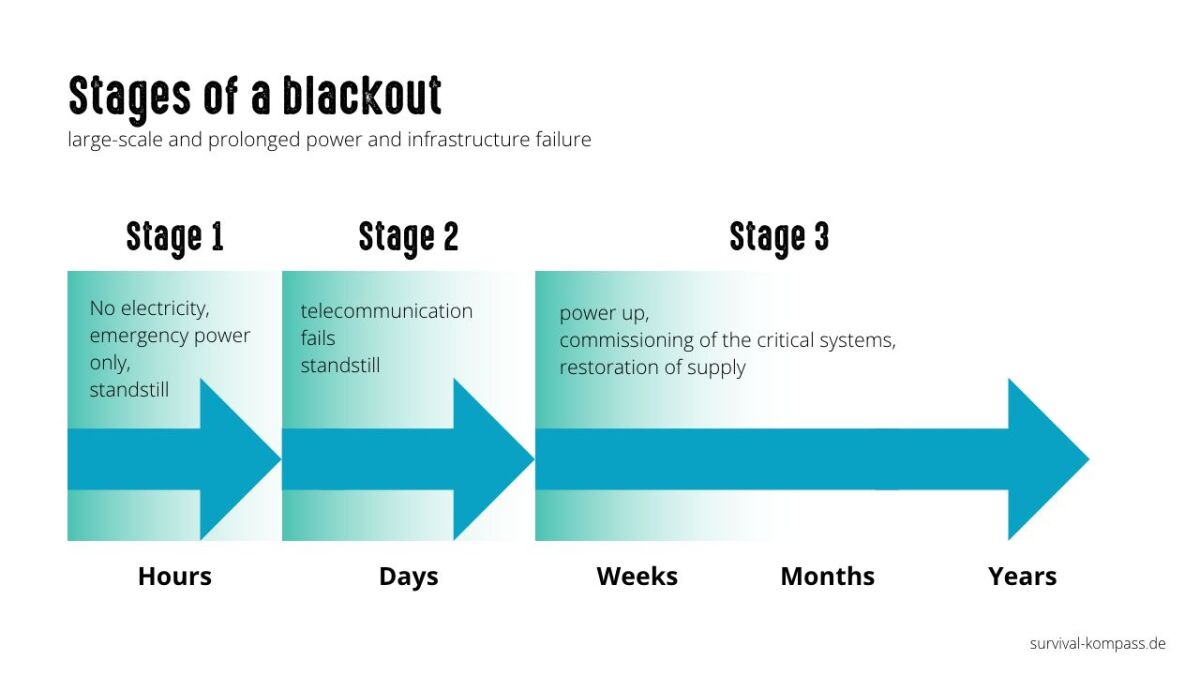
A blackout would severely affect our daily lives. So, the better you prepare for such a scenario, the better you will cope with such a crisis.
It is particularly important that you have a plan when the power goes out. You should also prepare properly and stock up on food, water, tools, and all sorts of other necessary things.
More importantly, I believe that we need to stick together and support each other in such a crisis. Because no one can help so many people alone or take care of others (such as sick or elderly people) if system-wide supply fails.
So, you are also called upon to prepare as best as possible for a widespread and persistent power outage.
What is the difference between a power outage and a blackout?
| Power outage | Blackout | |
| Duration | short | long |
| Probability | low | very low |
| Area | small | large |
Why do blackouts occur?
Although we humans secure risks as much as possible, we are not almighty and must surrender to natural conditions.
Therefore, a blackout can be caused by environmental factors, such as:
- Floods
- Severe weather
- Earthquakes
- Volcanic eruptions
- Snow chaos
- Landslide
- Drought (cooling water shortage)
- Solar storm
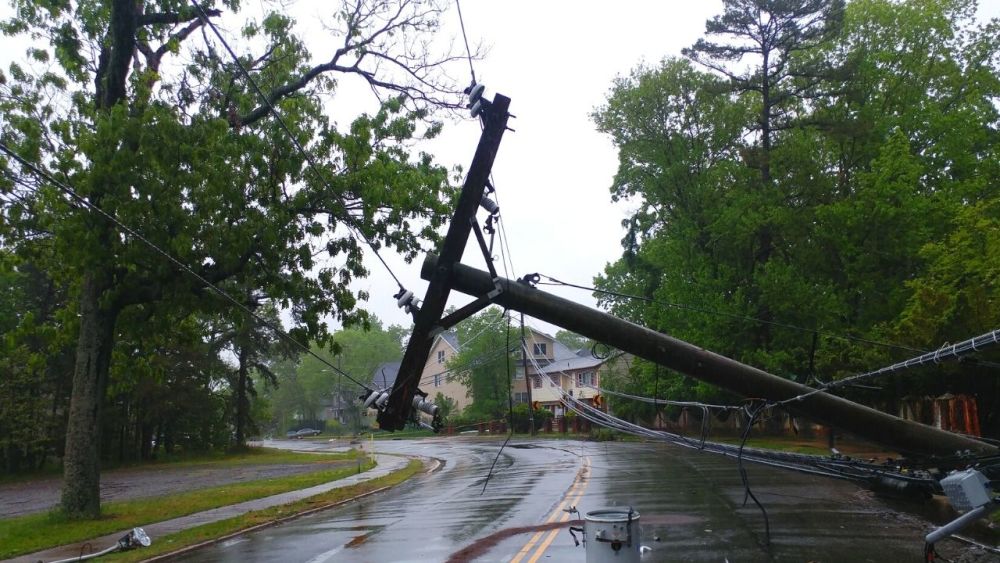
However, some experts do not believe that a natural disaster will be the cause of a blackout. They are convinced that the system will fail.
System failure means that without additional external influence, the system collapses.
The reason for this is the increasing complexity, which then becomes uncontrollable. There is an overload and the technology switches off by itself to avoid being destroyed.
Other reasons for a large-scale and sustained power outage include:
- Technical failure, such as maintenance deficiencies, old equipment, and device errors
- Human error, such as incorrect reactions or faulty settings
- Lack of primary raw materials for power generation, such as oil, gas, coal, fuel rods, and water
- Excessive system loads due to international power trading
- Criminal acts, such as theft, fraud, or extortion
- Terrorist attacks
- Warfare
- Coronal mass ejection from the sun (CME; destruction of electronic components)
- Cyberattacks
- Gas crises and gas shortages (read here how to prepare for it)
- Nuclear accident
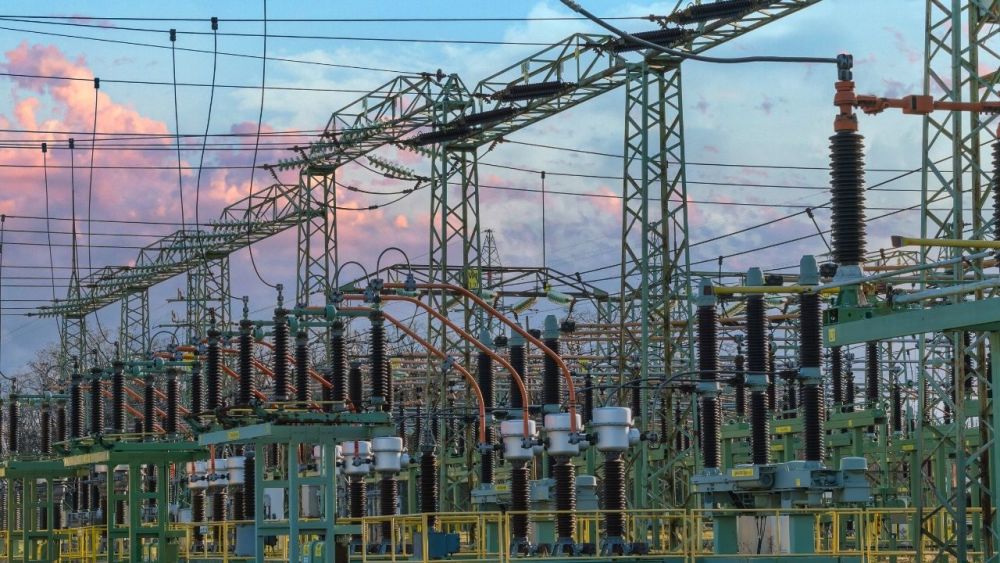
Just, I read that a storm in Germany caused power outages once again. Some places have been without power for several days simply because salt deposits from the Baltic Sea are on insulators. This can cause short circuits and the faults are difficult to find.
The future also worries me, as fuels for energy supply are always a problem, such as the gas shortage in the coming years.
In addition, smaller blackouts are increasing, such as recently in Dresden and Wiesbaden.
"The low natural gas reserves, the shutdown of more and more nuclear and coal-fired power plants, and the fluctuating wind have increased the risk of a major power failure." writes the Tagesschau on November 23, 2021.
And renewable energies are just as challenging. As much as I appreciate green energy, it is still challenging. Since energy cannot be stored on a large scale, irregular energy supply to the power grid is a problem.
This is particularly evident with wind turbines: if the wind is too strong, the turbines are shut down, as they would otherwise produce too much energy and overload the power grid.
So, there are many diverse reasons, and it doesn't even have to be a terrorist attack or an EMP bomb - as some conspiracy theories suggest.
Even small mishaps with employees, electronic defects, and unpredictable natural events can cause blackouts.
Although the probability of a blackout is very low, the consequences are disastrous and threaten all of our lives.
What is the likelihood of a blackout?
First, the bad news: Unfortunately, there are no studies that I can show you here and give you a percentage. Rather, it is an assessment that everyone should make for themselves based on available information.
It is true that we in Germany are not as affected by hurricanes as the United States. However, no hurricane or earthquake needs to occur to cause a blackout. Occasionally, a small event is enough and the domino effect strikes.
Like in 1976, when a forest fire at the German substation Hess triggered an explosion. Parts of Switzerland, Austria, and Germany were without power for a few hours.
Now, you might think that a few hours are no problem. Unfortunately, that's not the case unless you happen to be comfortably asleep at that time.
Other people had to endure fears because they were stuck in an elevator and didn't know when they would get out. Traffic lights went out, causing accidents. Hospitals were already running on emergency power.
Blackouts occur all over the world, here are some severe examples:
- Italy in September 2003: 57 million people affected for 18 hours. Reason: network problem.
- USA in October 2012: 8 million people affected for 7 to 14 days. Reason: natural disaster (Hurricane "Sandy").
- Pakistan in January 2015: 140 million people affected for 24 hours. Reason: sabotage.
- India in July 2012: 620 million people affected for 15 hours. Reason: network problem.
- Bangladesh in November 2014: 100 million people affected for 12 hours. Reason: network problem.
The problem with Europe: Other countries are prepared for such power outages and therefore know how to deal with them better. Here in Europe, we find it incredibly difficult to assess the risks.
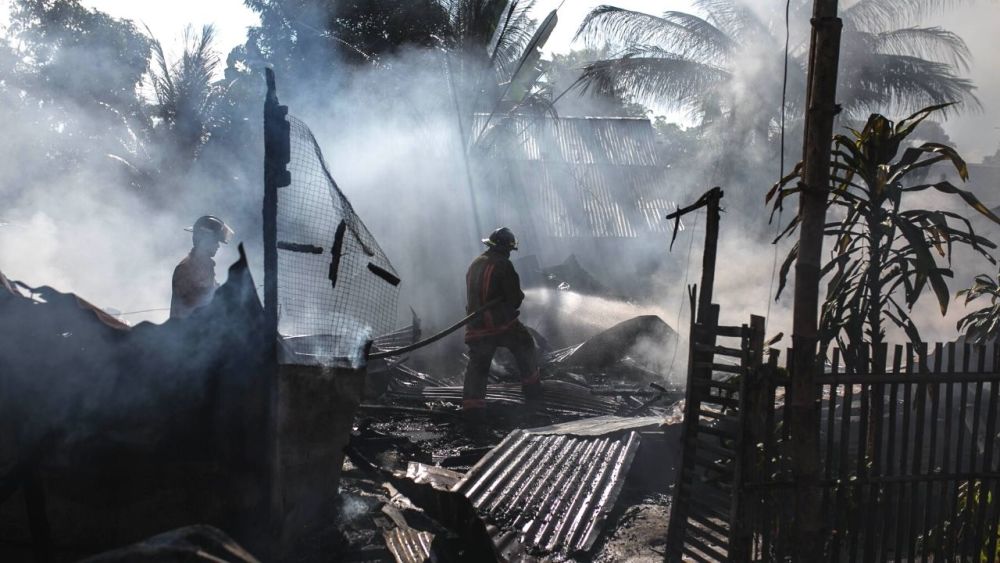
Is a blackout dangerous? What can happen?
Our modern society is completely built on electricity. Our lives are no longer as self-sufficient as those of a farming family 300 years ago.
We are heavily dependent on information technology and telecommunications, transportation, energy supply, and healthcare.
Our entire life and work environment is permeated with electrical devices. I don't just mean the smartphone, but also the morning alarm clock, the coffee machine, the water supply, the electric stove, our phone, the television, the entire supply of light, and so on. It is a long list that makes us dependent on electricity.
A long-term power outage that extends across Germany, for example, would be fatal for us and definitely threaten the health of many people.
The consequences would be a massive disruption of supply (essential goods and services, such as food or healthcare), economic damage, and public safety would be at risk.
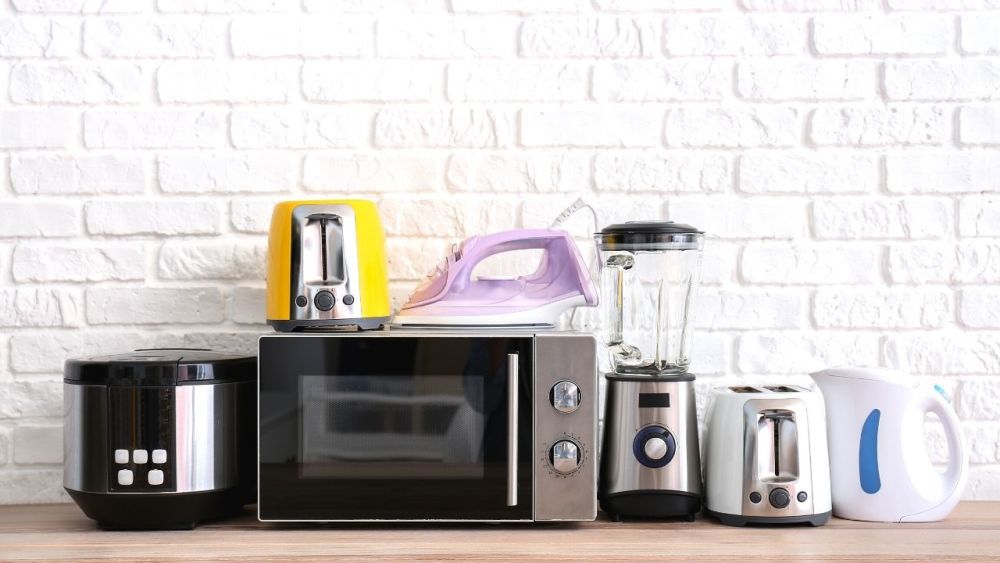
Just imagine that food becomes scarce or everyday necessities for survival, such as protection, warmth, water, or security, are difficult to obtain.
A short power outage in a small area is not a problem. The supply can come from neighboring areas. Sick people can be cared for elsewhere. It can be dangerous, but not life-threatening.
However, in a nationwide power outage that lasts for several days or weeks, the situation is fatal. The comprehensive and needs-based supply of the population with essential goods and services can no longer be guaranteed.
When people get scared, they sometimes act irrationally. Just imagine if the drinking water stops flowing because a power outage affects the water supply. Can you imagine what that means? It should be clear to everyone that public safety is then threatened.
I really don't mean to scare anyone, but a long-term and widespread power outage for me means a collapse of the entire society.
In 2010, a study was published by the "German Office for Technology Assessment" and it came to the conclusion:
"A catastrophe can be expected no later than the end of the first week, i.e., the health damage or death of many people as well as a problem situation that can no longer be managed with locally and regionally available resources and personnel."
How do I recognize a blackout?
Since a blackout is a power outage, the electricity will go out. You will notice this by the fact that electrical appliances and lights in your home no longer work.
First, check if your RCD switch in the fuse box is still in the active position. If it is active, the power outage did not occur due to overload or a short circuit in your power grid.
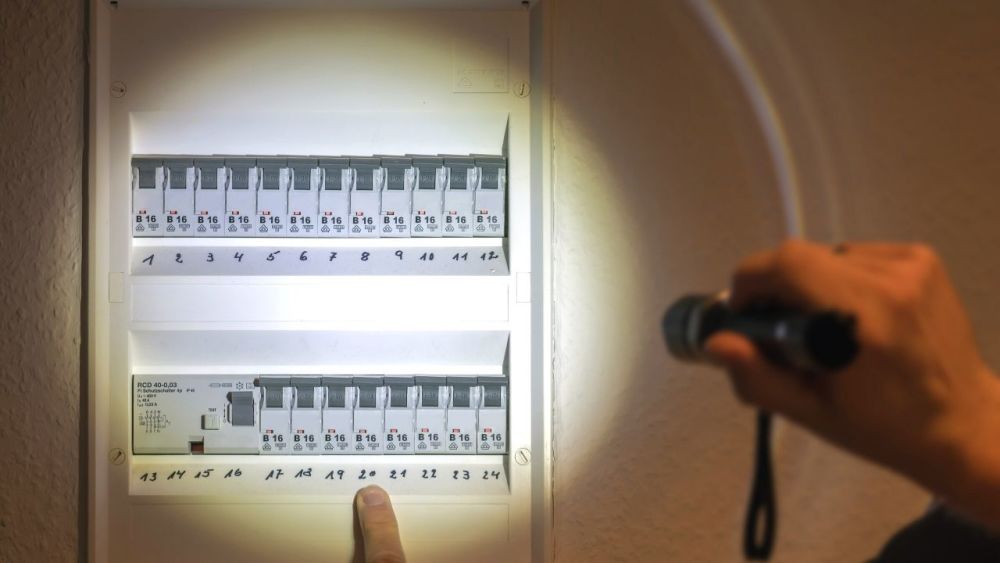
In that case, contact your neighbors and check if their power is out too. If so, the problem is not with your own power circuit, but with the grid operator. Streetlights can also be an indicator.
Call your grid operator to find out if you can get information. Your landline phone will probably not work, so use your smartphone, which hopefully is charged.
If your grid operator is working on the power outage, wait. In no case, call the fire department or police unless you have an emergency.
If it is now a blackout - a large-scale and probably long-term power outage - the following will soon happen:
- Smartphone and phone networks will go out.
- Radio stations go out or can no longer be received.
- In that case, immediately set your radio (I hope you have a battery-powered radio or a car radio) to FM.
- Radios with DAB+ function take care of this automatically. With these devices, you will hear all announcements. Some DAB+ radios even turn on automatically in an emergency.
You will find out what to do next in the next section.
How do I behave in a blackout?
If you think there is a blackout, stay calm and take a deep breath. You can be sure that the authorities already know about it and will take all necessary measures.

However, you can also act yourself and make the best of the situation.
The most important thing is not to endanger yourself, and to help others if they need your help. A blackout is difficult to survive alone. Only together can such a situation be overcome.
You must now be prepared to deal with emergencies yourself. Whether it is health problems or shortages. And you don't solve these problems on the fly.
Do it like the firefighters or other experts who know about emergencies and crises: communicate first, coordinate then, and work together with others to solve the problem.
Once you have understood this basic method, you can not only solve problems in emergencies, but you will also do well in everyday life.
What can you do at home during a blackout?
Now it gets concrete, and to make sure you are getting reliable information here, I use information from the Federal Office for Civil Protection and Disaster Assistance (BBK).
On the BBK website, you will find a lot of information, such as a video and several PDF documents. But that is by no means enough for me to deal with a power outage.
So, here's what you should do:
First, inform everyone in your family or circle of acquaintances about the power outage.
Furthermore, turn off all devices that were on before, such as the washing machine (to prevent possible equipment or personal damage). Disconnect electronic devices such as PCs or televisions from the power grid.
Leave the radio on so you can stay informed. Most announcements will happen on the hour. Furthermore, leave a light on, so you know when the power is back on.
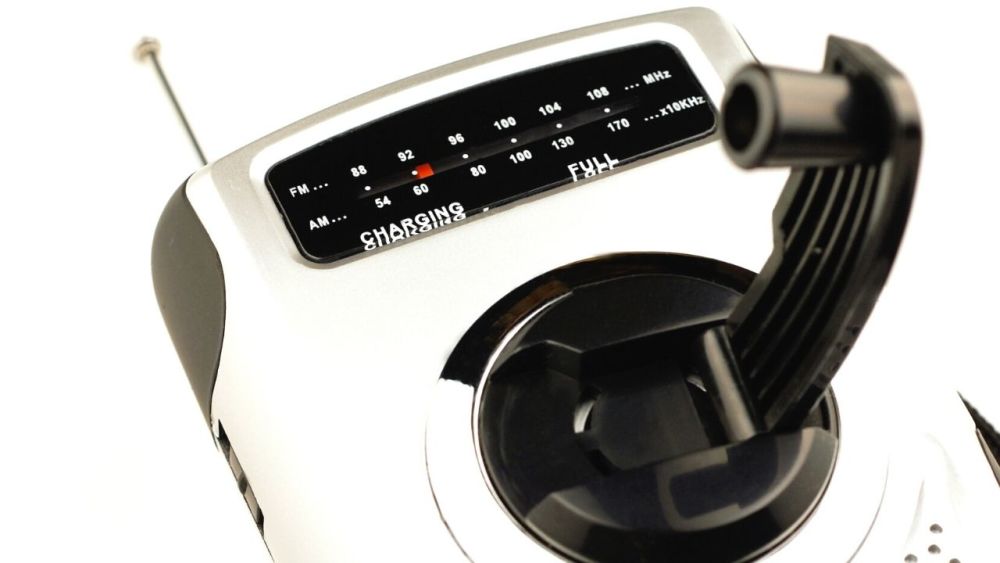
If you are still at work, go home (or walk if necessary). Pick up your children from school or daycare.
At home, you should ideally have your emergency supplies ready for a blackout (more on the list of equipment later). You know where to find candles, flashlights, matches, lighters, heat sources, and cooking facilities (even in the dark).
If your smartphone no longer has reception, put it on airplane mode or turn it off. This will save the battery and give you an extra flashlight.
If you don't have a water supply yet, it's time to fill up as quickly as possible. During a blackout, the water supply may also collapse. So fill as many containers as possible with water. Fill the bathtub and all the sinks.

If there is no improvement after a few hours and the power is still out, it is best to prepare for a longer power outage in the house.
After about 4–6 hours, you need to start checking your refrigerator for perishable food. Either eat the food that spoils quickly, or cook something with it (to make it last longer). If the power outage is in winter, you can store food outside (e.g., on the balcony).
It's best to only open freezers and refrigerators when necessary. This will keep the cold longer. Your freezer will still cool the food for up to 24 hours because it is well insulated. Full freezers can still cool for up to 48 hours.
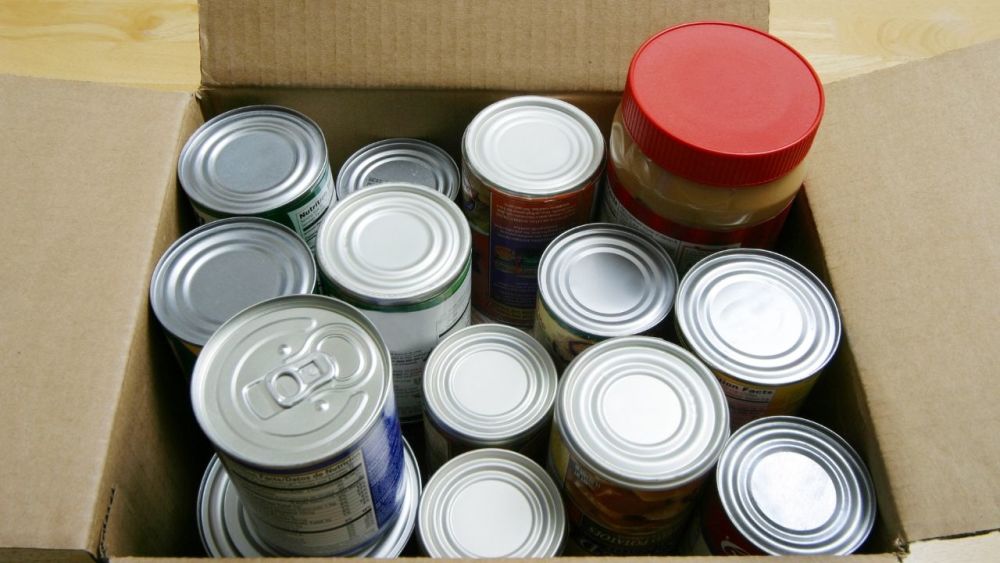
From now on, consider all your food as emergency supplies. But be careful, if food smells strong, or you have any other concerns, never take the risk of food poisoning in an emergency. Food is not quite as important as water, so stay away from spoiled food.
Cooking with an electric stove is no longer possible, and hopefully, you have thought of a backup option for cooking in your house during your preparation. A camping stove is the first choice. Always remember to cook outside or in well-ventilated rooms. Ideally, you have a CO detector.
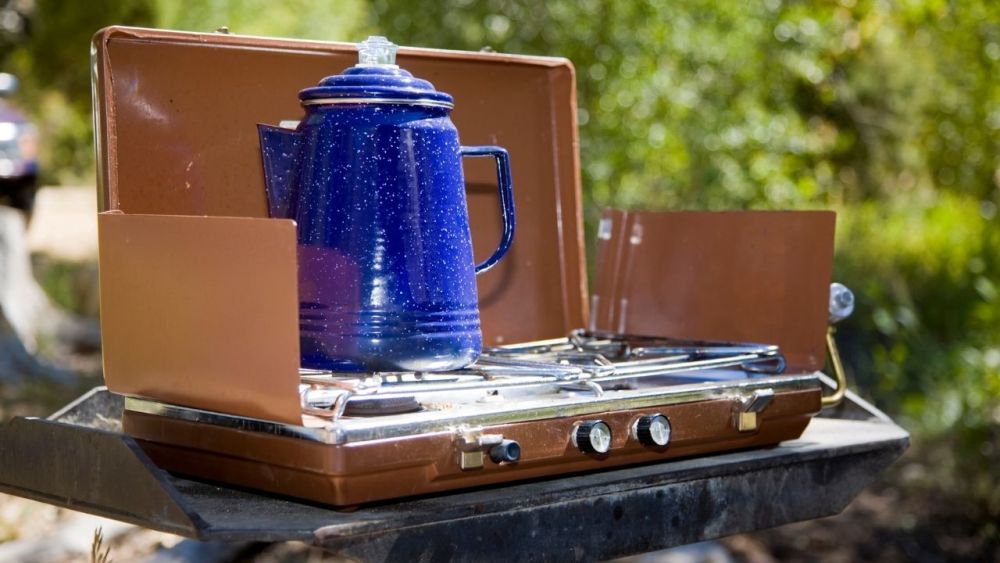
If possible, check your first aid kit immediately and check if anyone in the family needs life-saving medication (such as insulin). If it is not in stock in the house, get new medication immediately while you still can (pharmacy/emergency dispatch/doctor).
If you have an emergency power supply, start setting up gradually so that you can supply important devices with power. If the emergency power supply is powered by gas or gasoline, only operate it outside the house. Furthermore, only turn it on when necessary to save fuel reserves and the device itself.
In your house or apartment, choose a room where you will stay and sleep. This offers the advantage that you only have to keep one room warm.
Since the garbage truck no longer comes, it will be problematic to dispose of food waste and sensitive items. These things cannot be disposed of in the toilet, as there is no more water. It would also be foolish to waste water on them.
Store your garbage in a dry and cool place. Animals should not have access to it. Especially in summer, high temperatures can turn garbage into a problem and become a health hazard.
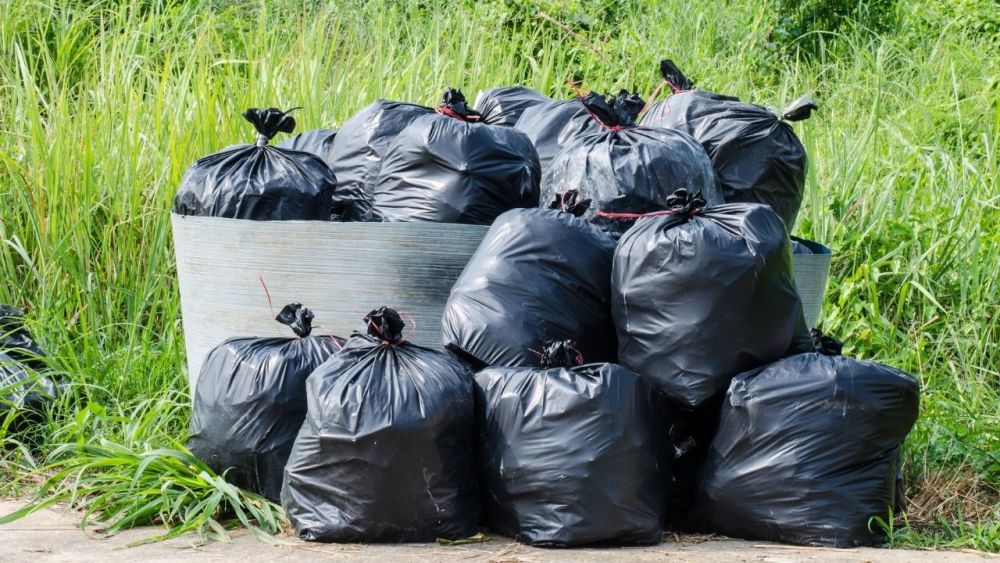
You might wonder how to go to the restroom during a power outage without running water?
You're lucky if you live near a forest. Simply dig a hole and change the spot every 1 to 2 days. Your garden can also be used for this. If you don't have access to woods and meadows, use a bucket with a plastic bag or an emergency toilet (here's a test of a separation toilet in Eurobox format).
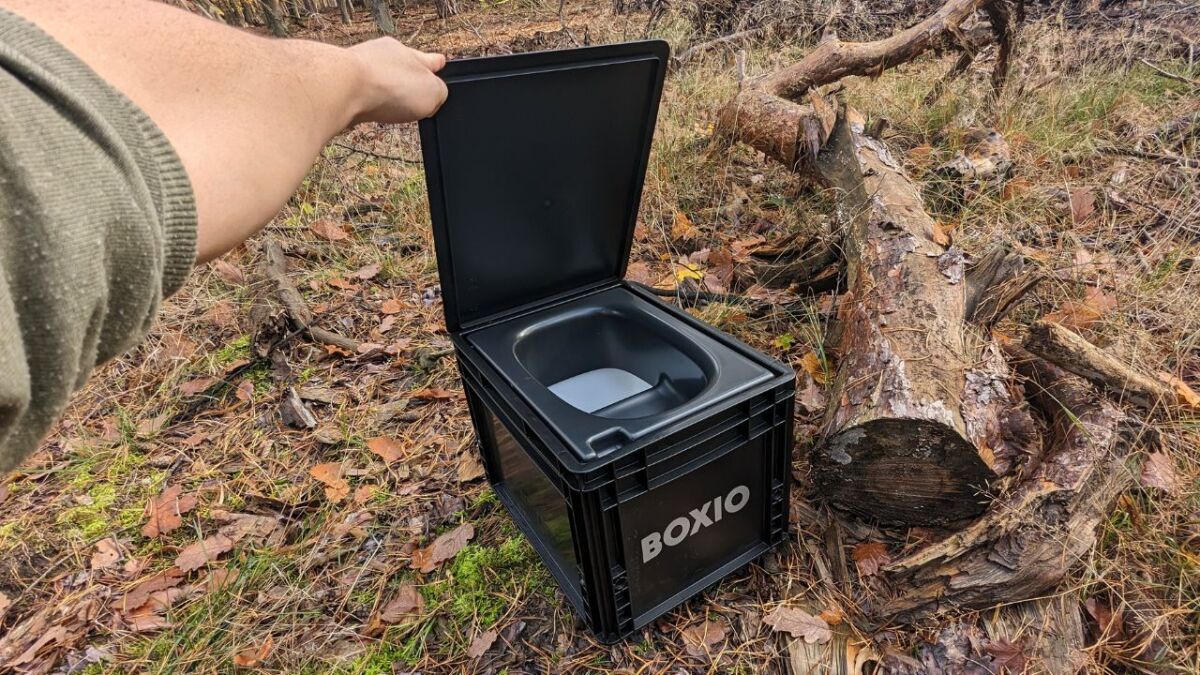
But most importantly: a blackout will test your nerves, and many people can't imagine what that means. To overcome this crisis in the best possible way, we need to talk about it and come together.
As long as we work together, solutions will be found. There may be some stubborn people, but they shouldn't make us doubt our unity.
If you're at home, and it's hot outside, go to the lowest level of your house because cool air stays down there. Wear light-colored, lightweight clothing. Drink plenty of water, even if you don't feel thirsty.
Wear layers of warm clothing when it's cold outside. If the power goes out for an extended period of time, plan to go to another location (a relative's or friend's house or a public facility) that has heat to stay warm.
Recommended reading: 9 ways to stay warm without electricity and heating
Avoid unnecessary travel, especially by car. Traffic lights will be out, and the streets will be congested.
Blackout preparedness: What do I need for a blackout?
Most of us have experienced a power outage for a few hours.
But a blackout is a power outage that can last for hours, days, or even weeks. These power outages can occur due to a major storm, hurricane, transformer failure, or other problems.
Therefore, it's a promising idea to prepare for such an emergency. You'll be ahead of some people by stocking up on supplies for several weeks.
Preparedness is an essential point in all emergencies. (See my general prepping list)
Here's my minimum equipment list for a blackout:
- Three-day supply of drinking water
- Non-perishable foods that are easy to prepare
- Battery-powered or hand-crank radio
- Flashlights and fresh batteries
- First aid kit
- Wet wipes and garbage bags for personal hygiene
- Extra blankets and warm clothing, including a hat
- Sleeping bags
- Battery-powered or wind-up clock
- All special medications you need
- If you have pets, food, and water for them
- Cash
Maybe you're new to crisis preparedness and find it strange to prepare for a long time without electricity.
Regardless of where you are in the process, I want to encourage you to prepare for at least two weeks without power, so here's my detailed list below.
Water
I assume that you will be spending the power outage in your house or apartment, so you have a roof over your head.
Clean drinking water should be your top priority to get through this.
During a blackout, it's possible that your faucets won't work. There's also a risk that water filtration systems may no longer work - and that means the water is contaminated or not drinkable.
It's important for every family to have a two-week supply of water. The general rule is 1.5 liters of water per person per day, but you need more for cooking and hygiene. That means 2.5 liters per person is ideal.
For two weeks, my four-person family needs 140 liters of water. You can calculate this exactly with my water calculator for emergencies.
It's also important to store water for your pets. We don't have pets, but our neighbors have to consider their dogs, a cat, and a rabbit.
A water bag for the bathtub is also a great investment. If you're expecting an emergency, fill up the water bag.
Furthermore, cleaning tablets and a water filter are also a good choice to make water drinkable in an emergency.
Food
Storing food that doesn't need to be cooked is a great idea.
As an example: while dried beans are cheaper, a lot of fuel is needed to cook them until they are soft. To be prepared, you should get canned beans. They are easy to cook and can be eaten cold if necessary. And beans with rice are a fantastic meal.
Here are some of my favorite foods to stockpile.
- Protein shakes - just add water
- Peanut butter or almond butter
- Cookies, crackers, pretzels
- Dry cereal or cereal with water
- Powdered milk
- Nuts/trail mix
- Canned fruit
- Canned beans and vegetables
- Packages of pre-cooked and seasoned rice
- Canned soups
- Instant mashed potatoes
- Canned beef, chicken, and fish
The Federal Office for Civil Protection and Disaster Assistance recommends storing food for 2200 kilocalories per person per day. The number of supplies should be sufficient for at least 10 days.
Further information: Calculate your emergency food supply with my storage calculator.
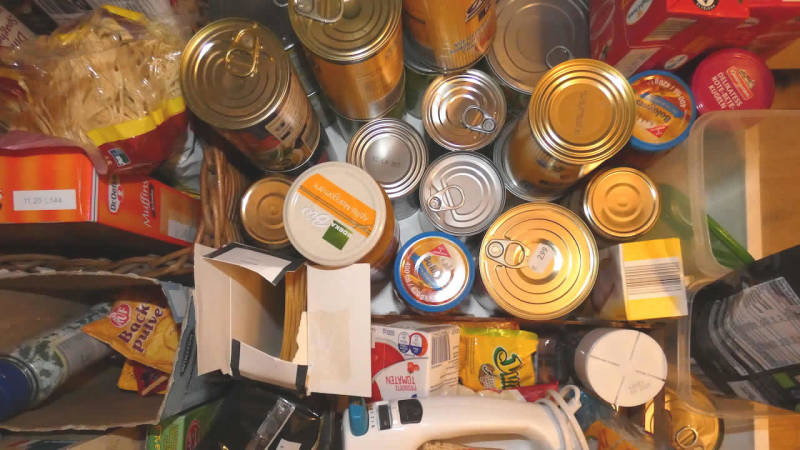
Alternatively, MREs (Meal, Ready-to-Eat) are a practical option for survival food as they have an extremely long shelf life.
The freeze-drying technology removes all moisture and preserves nutrients and taste, allowing for a long shelf life of up to 25 years. MREs are easy to transport, do not require refrigeration, and offer a wide range of flavors (which is why they are more expensive).
Fresh fruit is also ideal (especially in the cooler months). Most fruits are good for two weeks when stored outside the refrigerator, such as apples, melons, oranges, and pineapples.
Also read: The best survival foods (10+ years shelf life)
Light Sources
A light source seems obvious during a power outage. Therefore, you should store flashlights and batteries. Use LED flashlights, as they consume less power.
You can get flashlights at any dollar store, so get them. I particularly have a headlamp and a thin and lightweight flashlight (the Streamlight Stylus Pro LED flashlight).
Furthermore, keep a solid supply of candles on hand. Taper candles are my favorite. They burn well and last for several hours. In addition, they are among the cheapest candles, along with tea lights.
Glow sticks last for 24 hours, are cheap, and perfect for children who need to find their way in the dark.
Camping lanterns are also a good choice (here is my list of the best ones). This is especially advantageous if you already have a camping gear.
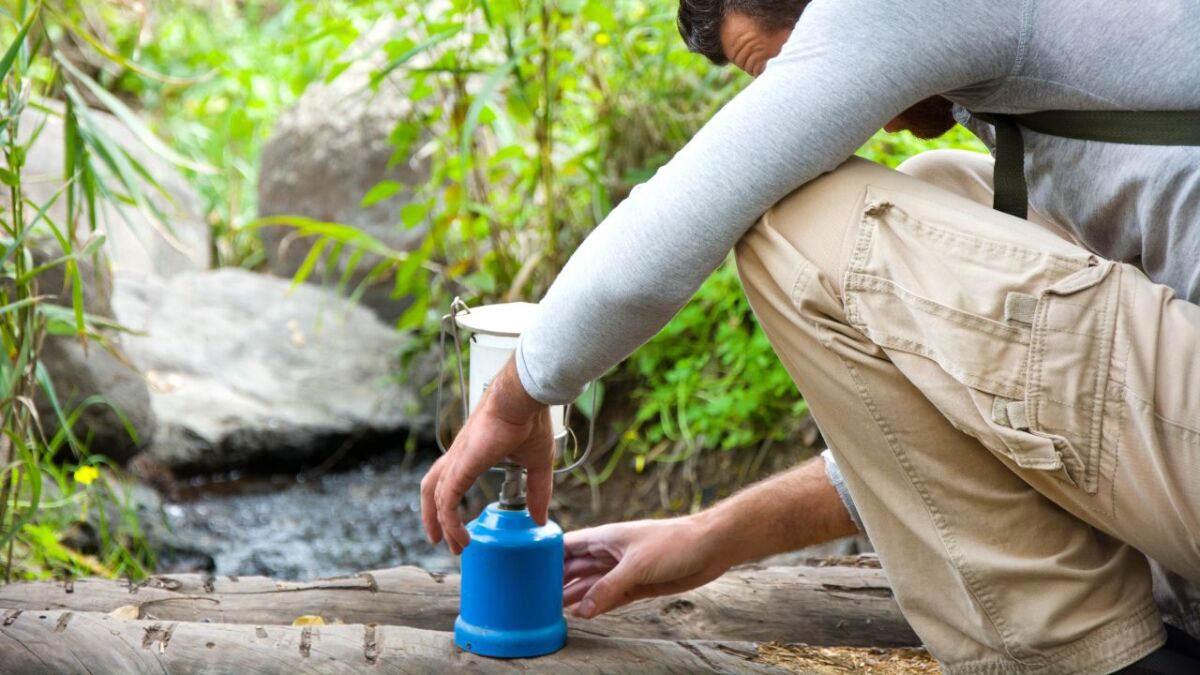
Radios and Information
A radio is essential for preparedness!
Electric radios do not work, but crank radios and battery radios are ideal for connecting with the world and receiving news.
You can even buy crank radios (find my list of the best ones + buying guide here) that you can connect your smartphone to. But honestly, I recommend power banks for that (here is my top list).
I also recommend the Warn-App NINA (for Germany) from the Federal Office for Civil Protection. I have been using the app for a long time and am impressed with how good the messages are. Just, a factory near me caught fire and I knew what to do.
Solar Chargers
Your smartphone, many flashlights, and even an emergency radio are important parts of your survival gear during a power outage. And wouldn't it be great if you could recharge these devices over and over again?
Of course, this is still possible in the first few days with power banks (here is my top list), which may still contain some power. But our technology has now advanced to the point where compact, highly efficient solar chargers are practically affordable for everyone.
These devices, whether small or large, fill the void in an autonomous power supply. Of course, a clear and sunny day is a prerequisite for generating plenty of power from practically unlimited solar energy.
But don't expect too much from these devices, as there are many solar power banks that are too small and not worth the money. Some of them take 3 to 5 days to fully charge! And then you can only charge your smartphone.
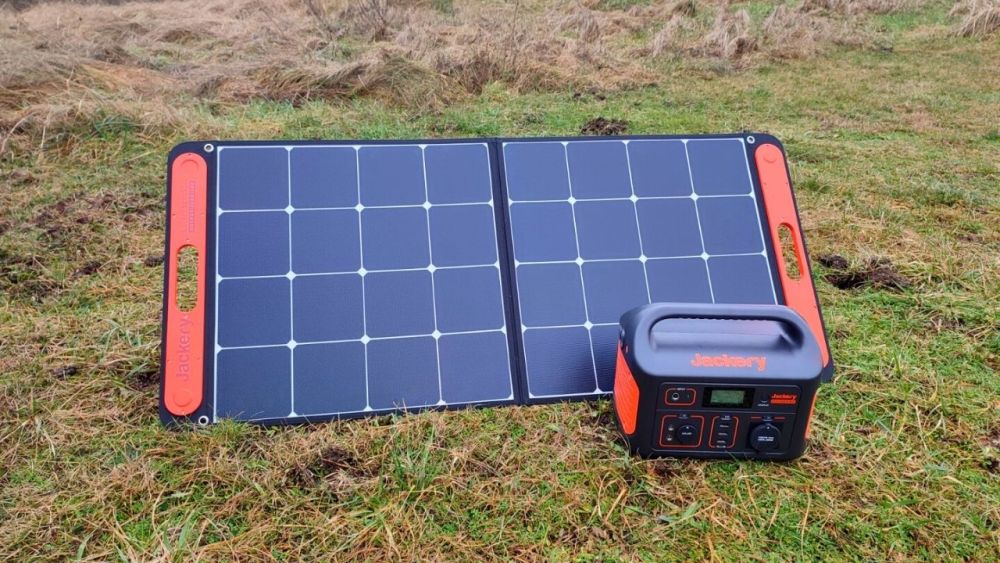
For solar power, it's better to rely on proper solar devices, such as the Jackery Solar Generator or the Bluetti Solar System.
Of course, it costs more than a mini-solar panel, but you get a device that is really usable for self-sufficient power supply. You can find my complete review of the Jackery Solar Generator here, and also check out the best solar panels.
Also read
The best power station in the test - for camping, road trips and power outages - Get power wherever and whenever you need it with a portable power station. We have tested the top power stations to find the best one.
Cooking Options
You need food for yourself and your family. And without water, the pasta, or rice won't get soft.
If you happen to have a wood stove or an old coal stove in your house, you are lucky. You just need to get firewood and you can start cooking. But in big cities, there are no stoves in the houses anymore.
A popular choice is a camping stove. You can also use a grill, but you have to go to the garden to cook. Additionally, you have to have lighters and matches ready.
If you decide on a camping stove or grill, you also need to have fuel on hand, such as gas cartridges. Keep enough of them in stock to get through a few days without any problems.
After the fuel runs out, cooking can become difficult. You can make a campfire, but you also have to leave the apartment and collect firewood. Solar ovens are also a great option, but you need sun again.
Also read: Outdoor stoves - which type is right for you?

Heat Source
If you live in the south, a heat source may not be necessary. But since we live in Germany, we rely on heating. Especially in the cold months, a blackout can be a challenge, and you need to take the right precautions.
In winter, you can keep warm for the first 24 to 48 hours with blankets, candles, and sleeping together. Thereafter, you need an additional heat source.
If you have a wood stove or fireplace, you are lucky. There are also some other options, such as propane heaters. Many people buy the Mr. Heater gas heater, the Honeywell ceramic heater or the TROTEC gas heater fan.
If you are looking for something bigger, then you should get a ceramic gas heater. If you also want to cook, then take the Mianova 2 in 1 ceramic gas heater-cooker.
Attention: Always remember to have adequate ventilation.
You will need additional propane gas bottles for the gas heaters. It is also advisable to use a battery-operated carbon monoxide detector in the room. The other option is a kerosene heater, but it poses a higher fire risk.
I have listed all alternatives to gas heating in my guide "The complete guide to heating without gas and what emergency heaters are available (with and without electricity)".
Sanitary Supplies
Germs and infections spread quickly in unhygienic places. There are a few things you can do in your home to keep it clean.
Some experts recommend that you should have a supply of paper plates, paper towels, and disposable cutlery. This is to avoid dirty dishes.
I understand this point well because water is precious in a crisis. On the other hand, waste should not be taken lightly, as it can attract pests and animals if not disposed of correctly.
As a precaution, you should also have cleaning wipes and sprays, hand sanitizer, baby wipes, disposable diapers, and toilet paper on hand.
Another thing to consider is whether your toilet flushes without electricity. If you can, you can store water for flushing by adding it to the tank whenever you need to flush.
If the toilet flush doesn't work, you'll need to stock up on sturdy garbage bags (some even use cat litter).
To achieve this, put the garbage bag in an empty toilet or bucket. Add a layer of cat litter and add more after each use. Then dispose of the bag - before it gets too heavy - outside the apartment.
My tip for a clean solution: I own the BOXIO-TOILET - a cheap separating toilet for us humans who want to be prepared. The whole construction is only as big as an Eurobox and can be stored perfectly for emergencies. So ideal for a crisis when the water stops flowing - or for the camper or your bug-out location.
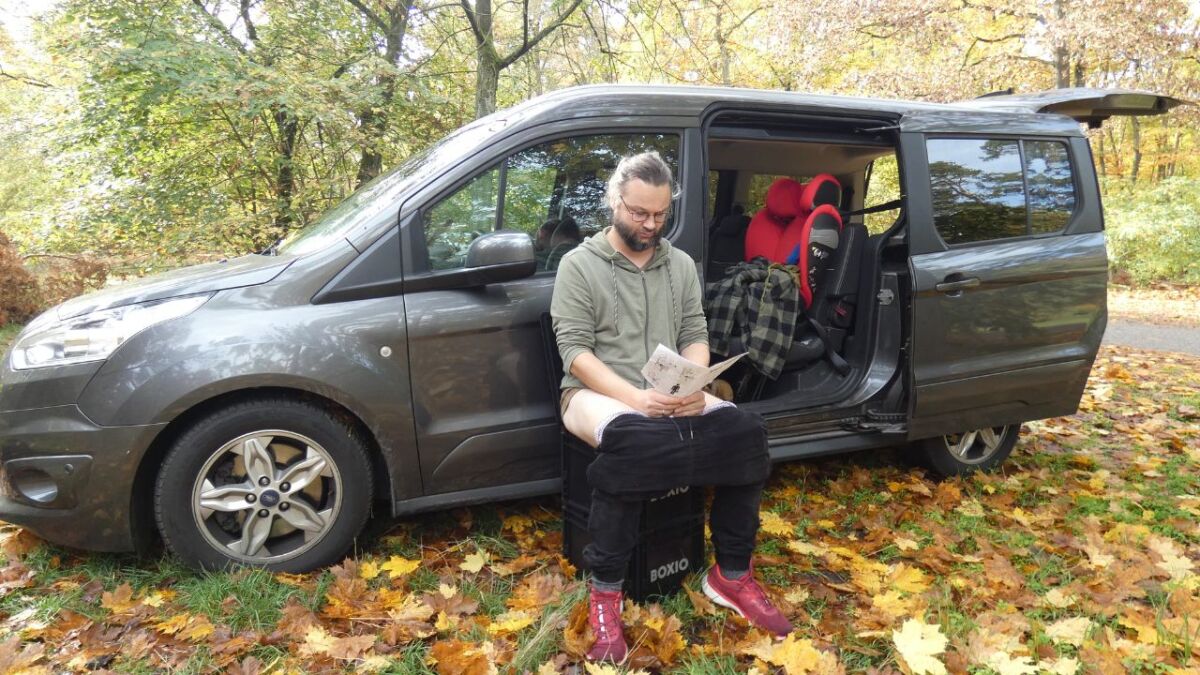
Hygiene Products
Hygiene products are a chronically underrepresented item in preppers' survival supplies.
It is true that one or two days without your typical morning or evening toilet routine probably won't kill you.
But neglecting your body hygiene in the long term can have serious physical and mental consequences.
First, the less important: no one likes to be around people who stink. But that doesn't matter in an emergency because then everyone usually has a bit of an odor.
What's much worse is that dirt promotes bacterial growth on the skin, which can cause infections with injuries or a variety of other illnesses.
Easier said than done, considering that a major power outage can disrupt or even completely interrupt your usual water supply.
Therefore, you should stock up on wet wipes and soap to clean the most important body areas.
All other usual hygiene products such as toothbrush and toothpaste, deodorant, and products for female menstruation should be available in sufficient quantities.
Read also
Discover my outdoor hygiene tips and tricks to stay healthy and clean in the wild - I'll show you my tips on how to use simple methods to maintain hygiene in the wild, stay healthy and respect nature at the same time.
Fuel for Your Car
You may need to leave your home - due to a medical emergency or other life-threatening reasons.
However, I strongly recommend that you stay where you are until you can't anymore. But if you do need to leave, gas stations won't work. So, you'll need to store fuel for your vehicles, which isn't so easy in Germany.
Gasoline and diesel are hazardous materials and are subject to laws. According to the law, you may store a maximum of 20 liters of gasoline in your basement or garage. However, this is the maximum amount per household. You can store gasoline for several years (airtight and with all precautions).
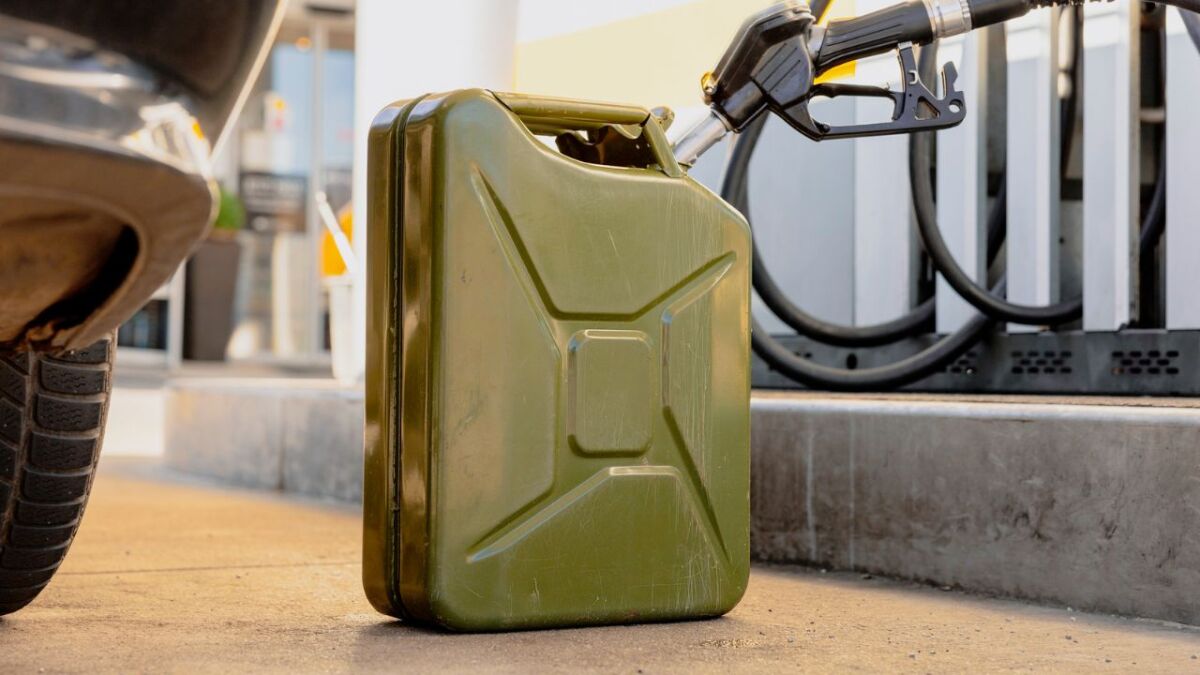
With diesel, it's a different story because this fuel is only good for 6 months. In a car, it's only good for 2 to 3 months. You may store up to 200 liters of diesel in your basement. You are not allowed to store gas in your basement at all (source: guide from BKK, PDF).
Since the topic of "storing gasoline" is quite extensive, I have created an in-depth guide here.
You can find further information on storage on the website of the Federal Institute for Occupational Safety and Health.
First Aid Kit
You should always have a first aid kit in your house – at least in your car. Whether there is a blackout or not.
Your kit should contain all basic wound care items such as compresses, wound quick bandages / plasters, gauze bandages, scissors, rescue blanket, and gloves. In my article "First Aid Kit: put together and apply" you will find my complete guide.
You should also have painkillers, cold medicine, allergy medicine, cough syrup, and additional prescription medication on hand.
Also read: Medicines for Preppers – Your Home Pharmacy for a Crisis
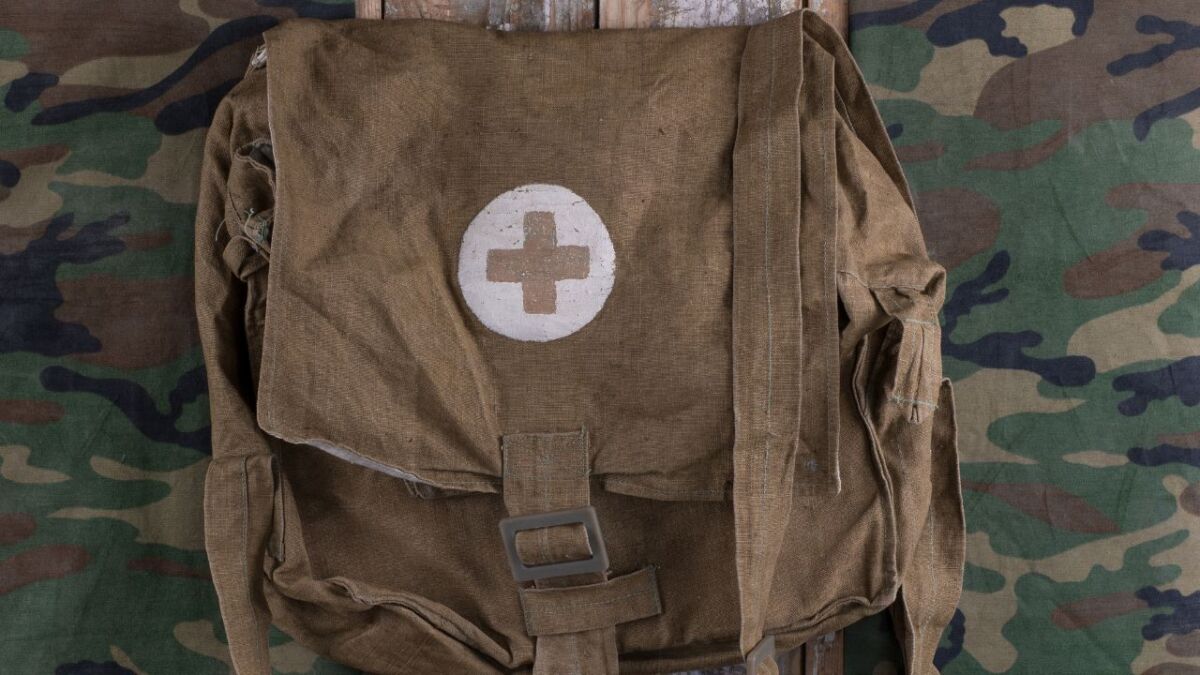
Money
You should have cash on hand for the blackout and have been putting it away for some time now.
You will find that ATMs no longer work. But stores may be open, which only accept cash. Bring smaller bills so you can get what you need more easily.
Entertainment
During a blackout, you will probably be sitting at home for hours, days, or even weeks.
I don't know about your children, but mine will surely start getting bored quickly (or they'll argue).
In the countryside, they could go outside and play. In the city, however, I wouldn't do that.
So, check if you have enough books and games. Another great thing to have on hand is board games. We have a closet full of board games, perfect for children and adults. Any opportunity to forget about the stress outside is helpful during a blackout.
Personal Documents
You should be better able to present your papers that prove you are who you say you are. And that also proves that you own what you say you own.
For your preparation, it's a promising idea to have a paper file or an encrypted USB stick with copies of all your identification documents, certificates, titles, account statements, and other important documents on hand.
A large-scale local or regional power outage is highly likely to disrupt or completely disable the Internet and other communication infrastructures. So, make paper copies and save your documents on password-protected memory cards.
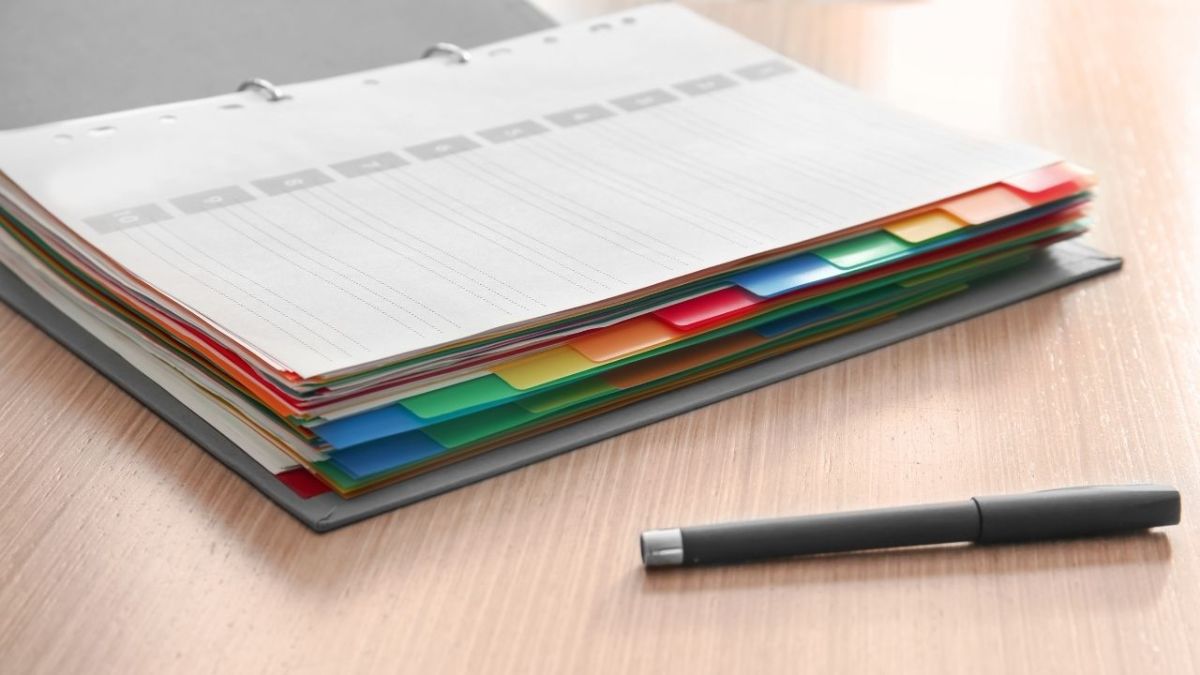
One thing about weapons: many people understandably fear for their property. And if you're one of them and interested in free weapons for self-defense, I recommend my guide to free weapons (in Germany).
What to do when the power comes back on?
Once the blackout is resolved, it does not mean that the power will flow as it did before.
You should prepare for several weeks of emergency power supply.
Only when the power supply is stable and functioning at the European level, will there be no further outages. You will likely receive this announcement through the radio.
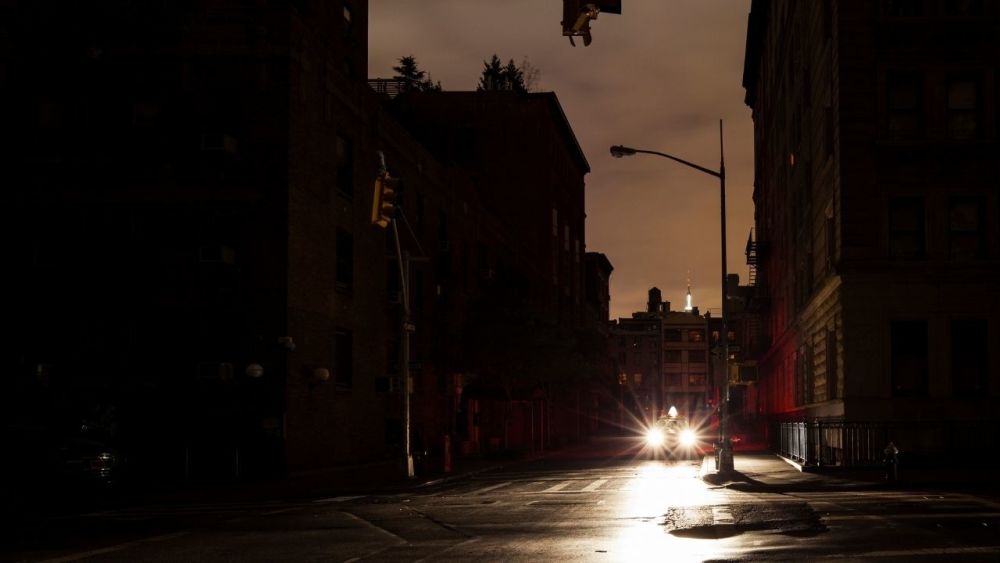
Until then, you should expect that the existing electricity will be used for critical areas such as hospitals, the production, and transportation of food and water.
It will also take some time for your smartphone to regain reception, and for landlines and the internet to function properly. Only then will the production and distribution of goods resume.
Here's what you should do when the power comes back on:
- Keep unnecessary devices disconnected so that voltage fluctuations do not destroy them
- Only turn on the devices you need to reduce electricity consumption
- Follow the instructions of the authorities and continue to wait
- Even if the phone network is available again, make as few calls as possible to avoid overloading it
- Check on devices that are already being supplied with electricity, such as heating or refrigerators
Even in this scenario: Help where you can, do not participate in rumors, and do not spread them.
As soon as all systems are up and running again, you should focus on your crisis preparedness once more and replenish the materials and items you consumed during the crisis.
How can I supply myself with electricity even in the case of a blackout?
As mentioned earlier, you can set up your emergency power supply. This is done with generators that are powered by gasoline, gas, or solar energy.
The key to crisis preparedness when it comes to preparing for power outages is your own power generation or storage system. This is either built into your home or adapted for powering your home.
Imagine simply flipping a switch and being able to continue as usual while the rest of your neighborhood, city, or region is plunged into darkness and doing without?
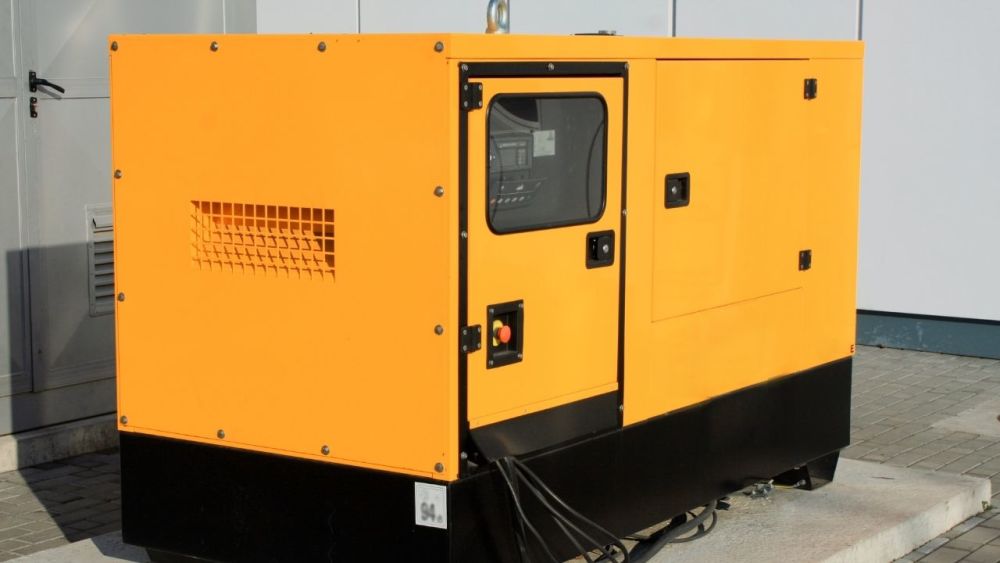
That would certainly be very convenient and comfortable, but there are also disadvantages.
The first and most obvious problem is the cost and complexity of most systems, whatever form they may take.
Diesel generators
Emergency or standby generators are expensive, require maintenance and upkeep, and present logistical challenges. And the storage of the required fuel is usually a hassle, except propane.
Of course, there are diesel generators that are small, like the 5000 watt emergency generator from KnappWulf.
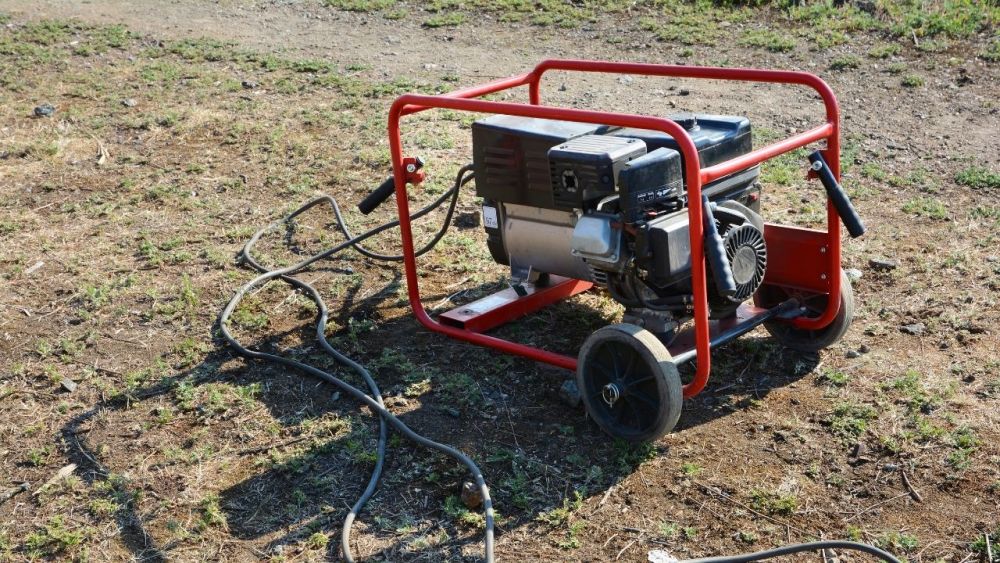
For people living in a rental apartment, this form of power generation is not an option. These devices are too heavy and too loud.
Solar energy
Solar energy is an increasingly practical option for individual primary or supplementary energy, but its effectiveness is highly dependent on location and weather.
In the right place and at the right time, solar could provide all the energy you need - and more, making you completely independent of the grid in an emergency.
As I mentioned earlier, I introduced the Jackery Solar Generator and for me, it's the best solution for people living in an apartment.
I have tested even more power stations here: The best power station in the test - for camping, road trips and power outages.
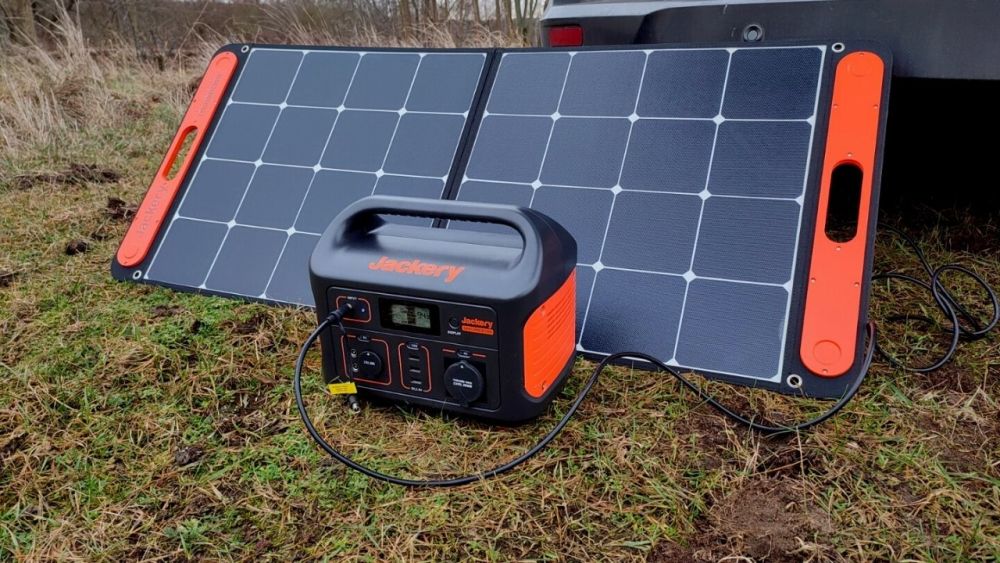
Battery system
Another option is a battery system for the entire house, typically a series of batteries that are charged by your usual electrical system and can then be activated in the event of a power outage to supply power to connected devices and other equipment.
All of these systems have their advantages, and properly thought out and installed, they can all either power your essential tools and devices or possibly, your entire home.
But keep in mind that with an autonomous power supply, you will attract the attention of other people. If you are the only one in the village with a brightly lit house, you will draw unwanted attention to yourself.
And now I want to know from you how much you estimate the danger of a blackout?
Leave a comment for the other readers and me.

Sources for the guide
https://www.tab-beim-bundestag.de/projekte_blackout-gefaehrdung-und-verletzbarkeit-moderner-gesellschaften-am-beispiel-stromausfall.php
https://www.srf.ch/wissen/technik/blackout-die-fuenf-groessten-blackouts-weltweit
https://www.saurugg.net/blackout/risiko-eines-strom-blackouts
https://www.deutschlandfunk.de/dab-im-katastrophenschutz-das-radio-als-lebensretter-100.html
https://www.bbk.bund.de/DE/Warnung-Vorsorge/Warn-App-NINA/warn-app-nina_node.html
https://gfkv.at/wp-content/uploads/2021/08/GfKV-Blackout-Vorsorge-Persoenliche-Vorbereitung-und-Bewaeltigung.pdf
https://www.saurugg.net/wp-content/uploads/2019/05/Checkliste-zur-bestmoeglichen-Bewaeltigung-eines-Blackouts.pdf
https://www.stuttgarter-nachrichten.de/inhalt.haltbarkeit-von-benzin-und-diesel-mhsd.92a2636d-ecb3-4601-affc-8e708b415067.html
https://www.bbk.bund.de/DE/Warnung-Vorsorge/Tipps-Notsituationen/Stromausfall/stromausfall_node.html
https://www.bbk.bund.de/SharedDocs/Downloads/DE/Mediathek/Publikationen/Buergerinformationen/stromausfall-vorsorge-selbsthilfe.pdf;jsessionid=77921F91F89F8B594CBA2DF5F4C1BE69.live131?__blob=publicationFile&v=9

Author of the guide
Martin Gebhardt
Hey, I'm Martin. On my blog, you will learn the basics and numerous details about living in the wild. I think survival, bushcraft and the good life in nature are the keys to happiness. Find me here on Instagram or on YouTube. You can find more about my mission on the About Me page.
Was this guide helpful?
105 people found this guide helpful.
4.89 out of 5 points (108 Ratings)
Comments (0)
This post may contain affiliate links. So if you click on the links and make a purchase, I will receive a small commission at no additional cost to you. Click here, to learn more about it.


